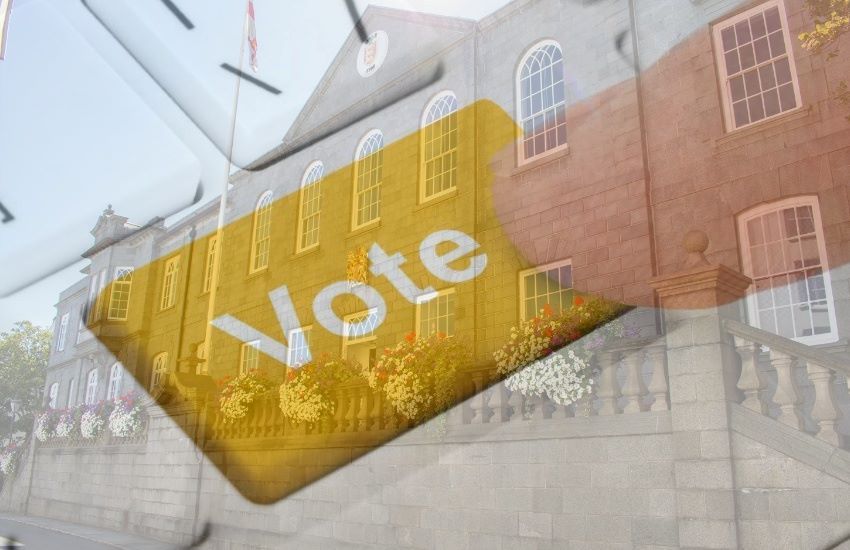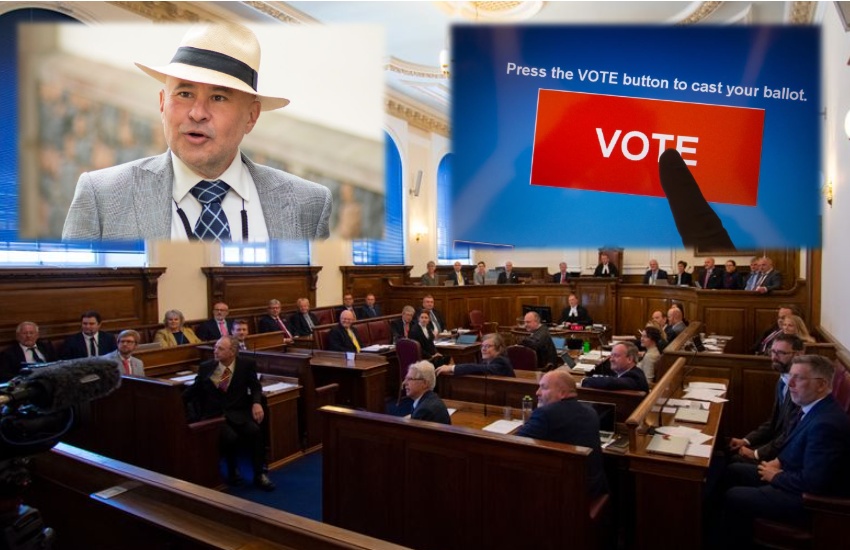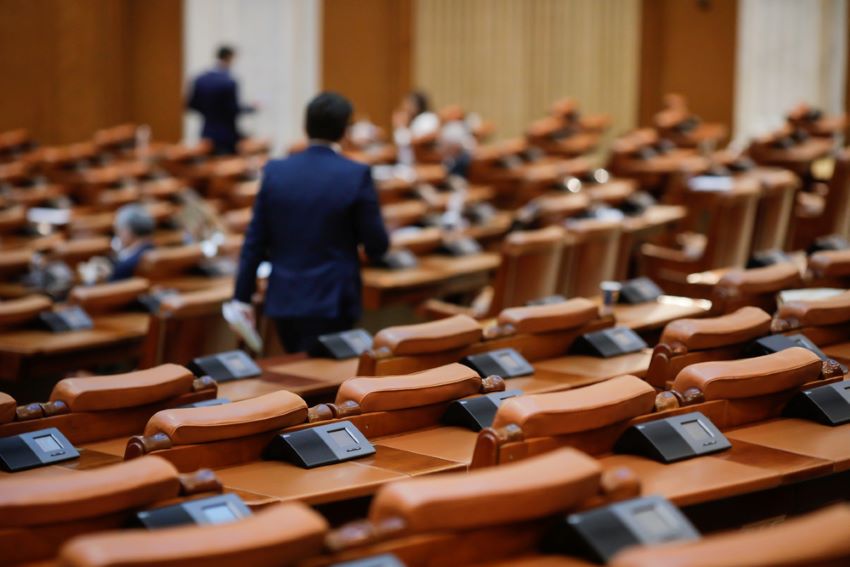


Guernsey's deputies used simultaneous electronic voting for the first time this afternoon but a technical error ensued, which derailed voting on two successive matters.
The Bailiff, Richard McMahon announced the first vote using the new system as the States looked to approve, or contest, the Guernsey Financial Services Commission's annual report for 2021.
The Bailiff called on the Greffier to open the vote and explained the process to the States members, who had all previously practiced the new electronic method.
Mr McMahon told them that their voting buttons wouldn't work until the recorded vote session was opened by the Greffier, and that they could vote or record their abstention electronically or by leaving the room.
Votes can only be cast from each deputy's designated seat and the Bailiff can see how many votes have been cast before closing the voting session.

Pictured: The Bailiff, Richard McMahon presided over the first attempt at simultaneous electronic voting in the States chamber.
Over the following one and a half minutes, chatter could be heard in the background of the States chamber before the Bailiff called order to ask why no one had yet voted.
"Nobody has voted yet," he said. "My screen is saying that no one is voting, I'm told that it is not working. What we could do is we could try closing this voting and restarting it to see if the Greffier can press the appropriate button.
"This is a brave new world," the Bailiff continued. "We want to make sure this works. This is digitisation at its best!"
After declaring the original voting attempt "null and void", the Bailiff warned they would have up to 15 goes at recording this vote.
Over the following two minutes the Greffier attempted to reload the voting system before informing the Bailiff that it was "unavailable".
"I'm advised by the Greffier that the electronic voting system is now unavailable, at least for the time being. All efforts will be made to restore the position," he said before holding an aural vote which saw the GFSC accounts approved.

Pictured: Deputy Carl Meerveld had been in charge of the effort to introduce simultaneous electronic voting.
There have been calls for the States to use electronic voting for many years.
The States Assembly and Constitution Committee, of which Deputy Carl Meerveld is the current President, successfully brought the proposals for the platform to the States, which was approved.
It is an app-based platform, provided by a local firm, costing £100,000 over three years.

Pictured: A form of electronic voting used in a Romanian parliament was one researched while the local platform was developed.
The second attempt at simultaneous electronic voting was dubbed "sequential voting" instead by the Bailiff, and although it did eventually work it took around half an hour for the vote on Guernsey Electricity's annual report to be recorded.
As they made the second attempt to conquer the brave new digital world, the Bailiff had further words of advice for the deputies present.
"If everyone's got their devices ready and have got the relevant bit up in front of them, you may have to reload which does sound quite technical to me - but I'll pause briefly before giving the instruction to the Greffier," he said.
"I know we said 'fastest finger first' but there is no huge rush and it may well be that it was everyone pressing the button at first that turned it into...so for simultaneous read sequential, so we'll do it one at a time, and a bit like an 'appel nominal' (individually) so when you've pressed the button put your hand in the air or something like that," the Bailiff joked.
The confusion continued with some deputies unsure whether voting had now opened on the GEL accounts, and some others still unable to access the voting platform at all. The President of the States Assembly and Constitution Committee, who had brought the proposals for electronic voting to fruition was among those.
A further 13 minutes was then spent preparing for a second attempt at electronic voting. When the vote on the electronic voting was attempted for a second time, the SACC President still could not access it and Deputy Meerveld was therefore unable to vote initially, although his vote was recorded in the end.
A further five minutes passed while voting was carried out and the Bailiff confirmed the simultaneous electronic vote had worked with 33 deputies voting 'pour' and one voting 'contre'. Two abstained and four did not vote.
The Bailiff suggested holding a recorded vote, which Deputy Lester Queripel formally motioned and this confirmed the result with the same votes aurally as electronically.
Comments
Comments on this story express the views of the commentator only, not Bailiwick Publishing. We are unable to guarantee the accuracy of any of those comments.